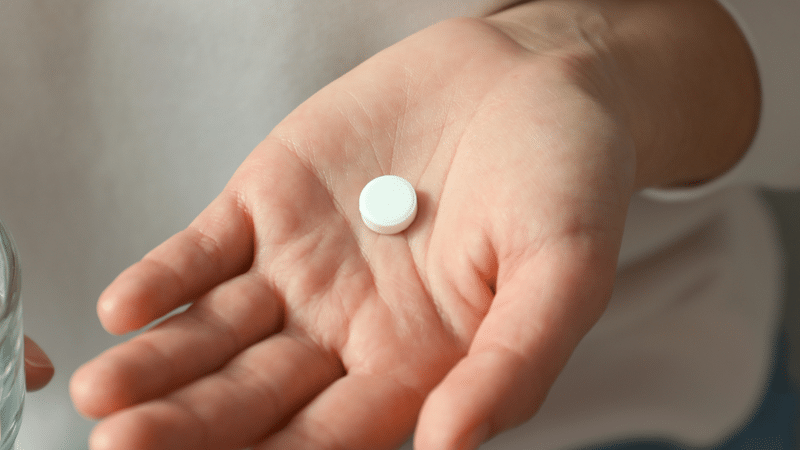How abortion activists are using Nicola Packer to push for more extreme laws

Nicola Packer was recently found not guilty of having an illegal abortion. In England and Wales, it’s against the law for women to have a DIY home abortion using tablets after ten weeks, and Packer had been accused of knowingly taking abortion pills at home well after that. Marie Stopes International, which provided her with the abortion pills following a remote consultation, told her she was less than ten weeks along, when in fact she was 26 weeks pregnant.
Not only is this significantly past the 10-week limit for at-home abortions, it is also past the 24-week limit whereby abortions are permitted for most reasons. Abortions are only allowed beyond that point in cases of disability or where the mother’s life would be in danger. In fact, the mother was far enough along that, had the baby been born alive, he or she would have had an 80% chance of survival.
But jurors rejected the prosecution’s case that she knowingly took the pills beyond the limit.
With no medical oversight required for home abortions, there are no reliable checks on how far along the mother is, and stories like Ms Packer’s are inevitable. The risks of undetected coercion and women undergoing traumatic later-term abortions alone at home were warned about when the scheme was rolled out across Britain during the covid-19 pandemic.
Not safe
Her trial has lit a fire under pro-abortion campaigners, who claim that Ms Packer’s case should never have been investigated, despite it being an illegal abortion. They say abortion should be decriminalised so that no woman can ever be prosecuted, no matter how late their abortion, and no matter the reason.
The irony is that in all likelihood, if Ms Packer had been required to see a medical professional in person, someone would have spotted she was well over ten weeks pregnant, she would not have been through the trauma of a home abortion alone, and there would have been no investigation.
But the reasonable requirement for women to see a doctor before they have an abortion is unconscionable for abortion campaigners. For them, abortion – at any stage and for any reason – is a human right, and must not be interfered with.
They ignore the harm that these chemical abortions do to the mother. There can be severe complications with abortion pills – particularly if taken later in pregnancy – including haemorrhaging and excruciating pain, which is exacerbated by lack of medical supervision.
Packer experienced some of those side-effects herself and went to hospital on the advice of an NHS 111 operator, her baby wrapped in scarves inside a bag, where doctors removed blood clots and a retained placenta (which can be life-threatening).
After she told midwives that she had taken abortion pills, and when staff realised her baby was in fact around 26 weeks old, the police were called and arrested Ms Packer on suspicion of ‘child destruction’ – killing a child in the womb that was “capable of being born alive”.
Deception
Ms Packer said she was confused about why to police were involved, yet it was right for an investigation to have taken place. Ms Packer’s baby was fully formed, capable of being born alive. Other extremely premature babies could easily have been cared for in the same hospital at the same time as Ms Packer was admitted, and if one of these other babies had been killed, the perpetrator would have been charged with murder.
As the Met Police has said, “The public rightly expects us to pursue the truth – even in sad and complex circumstances”.
The ‘abortion is healthcare’ message has clearly infiltrated the minds of women like Nicola Packer. At one point during the BBC’s ‘File on 4 Investigates’ episode, Nicola Packer shows some astonishing cognitive dissonance. Having been arrested for “child destruction” she says, “I wouldn’t destroy a baby”. But earlier in the interview, Ms Packer admits: “If I had have known, I wouldn’t have just left it and not done anything about it. Knowing that I’ve never wanted children I wouldn’t just continue with the pregnancy”.
Ms Packer, along with countless others, has been deceived into thinking that abortion is nothing more than ‘healthcare’. That it ends the life of an unborn baby is wilfully ignored.
And the media exacerbate this kind of thinking. In all the reporting of Ms Packer’s story, there was little or no thought given to the consequences of easy access to abortion on the lives of the most vulnerable in our society – babies in the womb.
During the pandemic, activists pushed for at-home abortions to be legalised in the first place, despite warnings it could endanger women. Now they are using its failings as a Trojan Horse for even more extreme laws.
MPs Tonia Antoniazzi and Stella Creasy have now tabled amendments to the Government’s Crime and Policing Bill to decriminalise abortion completely. They would mean that a woman could have an abortion, including an at-home DIY abortion, with complete impunity – up to birth and for any reason.
Let’s pray that abortion would not be made even easier, and that MPs would speak up for those who have no voice.
